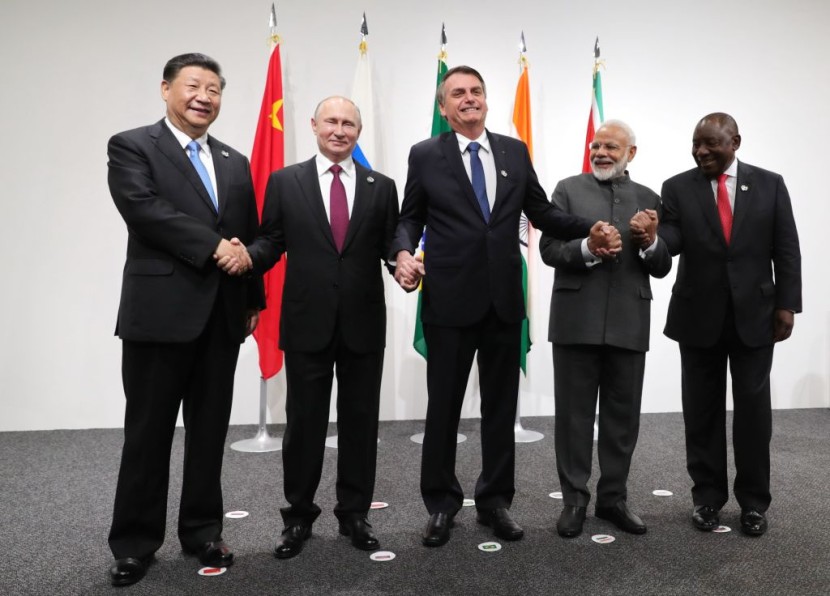
The BRICS group of nations, including Brazil, Russia, India, China, and South Africa, is looking to let other countries join to expand their global influence.
The group currently represents roughly 40% of the world's population and about 25% of the world's economy. Its plan to expand its membership comes as it considers having itself seen as a credible equivalent of Western-led forums such as the G7 group of advanced nations.
BRICS To Expand Membership
However, the major issue for the BRICS group is that it is as divergent as it is large and sometimes hindered by conflicting interests between its members and internal rivalries. Under the rule of Chinese President Xi Jinping, the Asian nation has planned to expand BRICS to make it a platform to challenge the United States.
On the other hand, Russia is looking to demonstrate that Moscow possesses loyal allies despite its continued isolation from the West due to its invasion of Ukraine. India has been in a territorial dispute with China for quite some time. It is currently wary of the Asian superpower's dominance within the group, as per the New York Times.
The other swing states of the developing world, Brazil and South Africa, want positive relations with China and Russia. However, they are looking to avoid being overly aligned with either one lest they get alienated by the United States.
The leaders of the five-member nations are set to meet on Tuesday for their annual summit that will be held in Johannesburg this year. The BRICS will try to navigate its internal differences, which could determine whether or not it will become a geopolitical coalition or remain focused on financial issues.
Finding common ground for the group members is only getting more difficult as the great power competition between Beijing and Washington intensifies. The situation is pressuring other countries to choose one side.
Read Also : North Korea's First International Commercial Flight Since Covid Era Unexpectedly Canceled
Global Tensions
The plan for BRICS to let other nations join in has been met with positivity and anticipation by some, including Saudi Arabia. The latter is among the 23 countries that have already applied to become full-time coalition members. The list includes Argentina, Egypt, Ethiopia, Indonesia, Iran, and the United Arab Emirates, according to DW News.
Despite the general optimism for the expansion of the coalition, Brazil and India have long opposed such a decision over China's possible growth of influence. The BRICS has been positioning itself as the representative of the Global South.
The planned expansion of the coalition comes as dissatisfaction with the global order continued to rise among developing nations following the COVID-19 pandemic. This was due to rich countries hoarding life-saving vaccines instead of donating to poorer nations to help save lives.
Iran, which possesses roughly a quarter of the oil reserves in the Middle East, expressed its hopes that the BRICS would detail the mechanism for new membership as soon as possible. According to Reuters, Bolivian President Luis Arce also expressed interest in joining the BRICS and is expected to attend the annual summit this year.
© 2025 HNGN, All rights reserved. Do not reproduce without permission.








